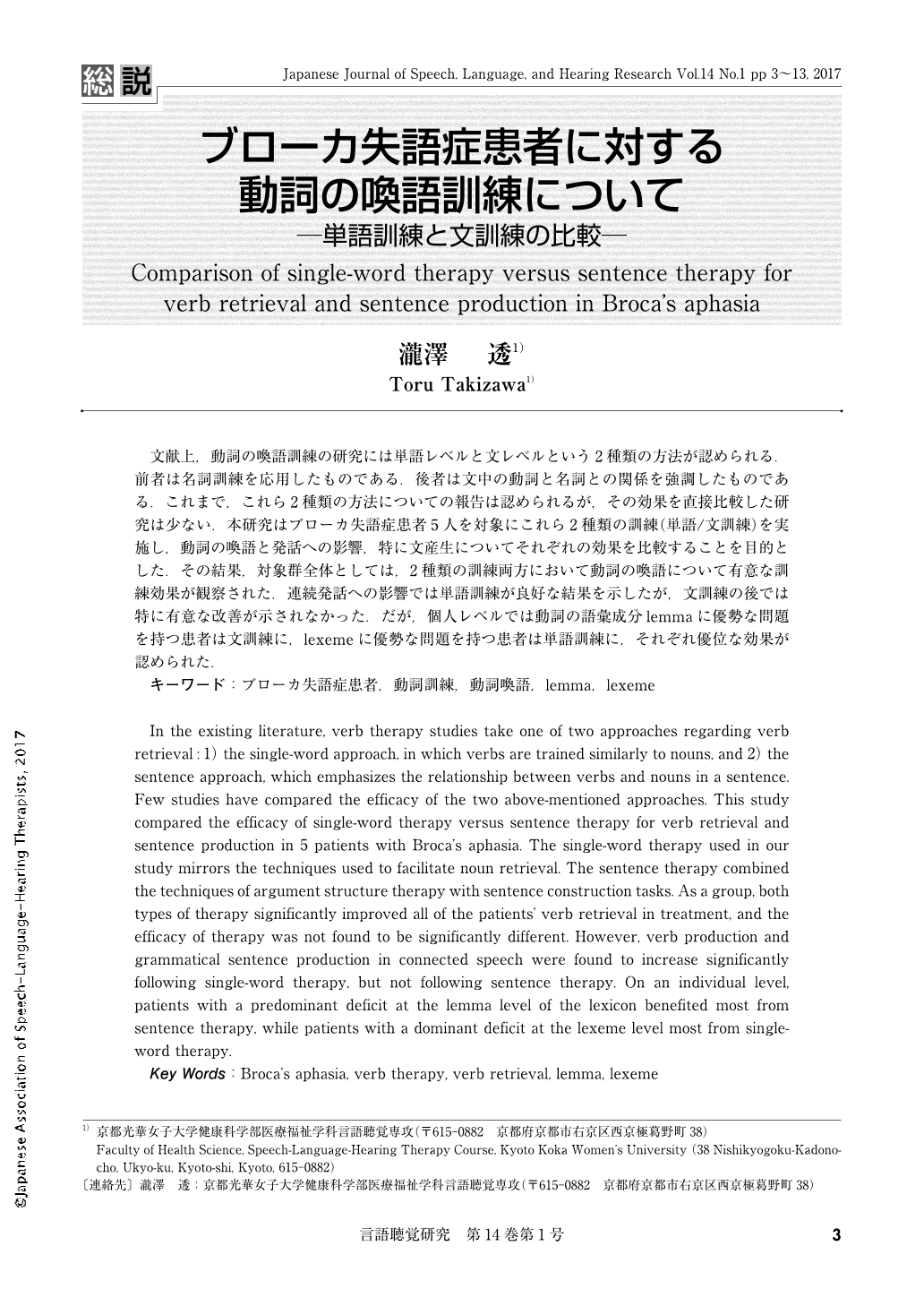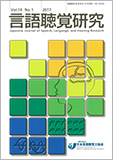Japanese
English
- 有料閲覧
- Abstract 文献概要
- 1ページ目 Look Inside
- 参考文献 Reference
文献上,動詞の喚語訓練の研究には単語レベルと文レベルという2種類の方法が認められる.前者は名詞訓練を応用したものである.後者は文中の動詞と名詞との関係を強調したものである.これまで,これら2種類の方法についての報告は認められるが,その効果を直接比較した研究は少ない.本研究はブローカ失語症患者5人を対象にこれら2種類の訓練(単語/文訓練)を実施し,動詞の喚語と発話への影響,特に文産生についてそれぞれの効果を比較することを目的とした.その結果,対象群全体としては,2種類の訓練両方において動詞の喚語について有意な訓練効果が観察された.連続発話への影響では単語訓練が良好な結果を示したが,文訓練の後では特に有意な改善が示されなかった.だが,個人レベルでは動詞の語彙成分lemmaに優勢な問題を持つ患者は文訓練に,lexemeに優勢な問題を持つ患者は単語訓練に,それぞれ優位な効果が認められた.
In the existing literature, verb therapy studies take one of two approaches regarding verb retrieval:1) the single-word approach, in which verbs are trained similarly to nouns, and 2) the sentence approach, which emphasizes the relationship between verbs and nouns in a sentence. Few studies have compared the efficacy of the two above-mentioned approaches. This study compared the efficacy of single-word therapy versus sentence therapy for verb retrieval and sentence production in 5 patients with Broca's aphasia. The single-word therapy used in our study mirrors the techniques used to facilitate noun retrieval. The sentence therapy combined the techniques of argument structure therapy with sentence construction tasks. As a group, both types of therapy significantly improved all of the patients' verb retrieval in treatment, and the efficacy of therapy was not found to be significantly different. However, verb production and grammatical sentence production in connected speech were found to increase significantly following single-word therapy, but not following sentence therapy. On an individual level, patients with a predominant deficit at the lemma level of the lexicon benefited most from sentence therapy, while patients with a dominant deficit at the lexeme level most from single-word therapy.

Copyright © 2017, Japanese Association of Speech-Language-Hearing Therapists. All rights reserved.


